
French reflexive verbs is always one of my favorite units! It’s so important, because students need to understand the placement and use of pronouns. It’s so fun, because they can act out their morning routines.
However, it can also be so confusing for them when they want to use possessive adjectives instead of the reflexive pronouns. You can provide meaningful practice for reflexive verbs that students will actually love!
How will you save time by getting students the right practice the first time?
1. If you teach French reflexive verbs well, you set students up to do better with pronouns in the future. If students don’t get the practice they need, they form bad habits that can be really hard to break.
2. Classtime is so limited, and you probably have loads of other things that you need to teach this year. Being as effective as you can the first time will save you work later.
3. With effective activities that teach students with a variety of learning styles, students learn the material more easily. This means you can move faster and spend more time doing your favorite activities.
Here are some ways to effectively teach French reflexive verbs.
1. Provide visuals for the vocabulary.
Students pick up vocabulary quickly when they have clear visuals to use as reference. Use image-based vocabulary sheets and games to present, practice, and support students.
2. Make sure students have easy-to-follow notes and writing activities.
While students need a lot of types of practice to correctly use French reflexive verbs, they have to have written practice. For conjugations, negative structures, or accented verbs, writing will be one much-needed activity to help them achieve mastery.
Correct placement and use of pronouns will help students as they learn French reflexive verbs and learn and/or review direct and indirect object pronouns. All student pages come in full-French for French immersion or with an English notes and directions version for students who need that support.
Learn more about Teaching French direct and indirect objects here.
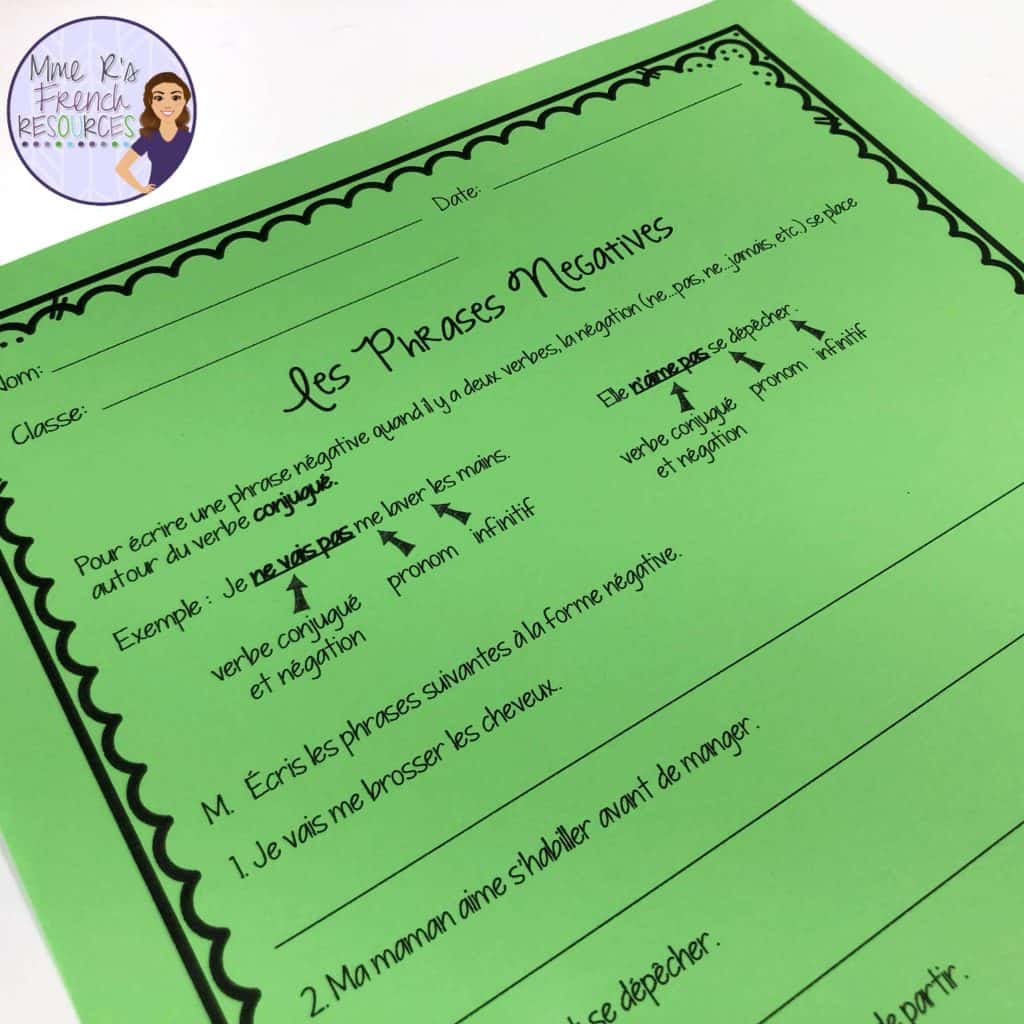
3. Have fun with verb conjugations.
Verb conjugation isn’t the most fun thing, but it can be made into a game. Games can be played in groups or students can roll and write the verbs. Students love playing with dice, and when verb practice feels like play, they make progress and love your class. I’d call that a win/win. 🙂
I love this dice game for practicing French reflexive verbs, because it’s a quick and easy way to practice, and students can play out loud or write down the verbs.
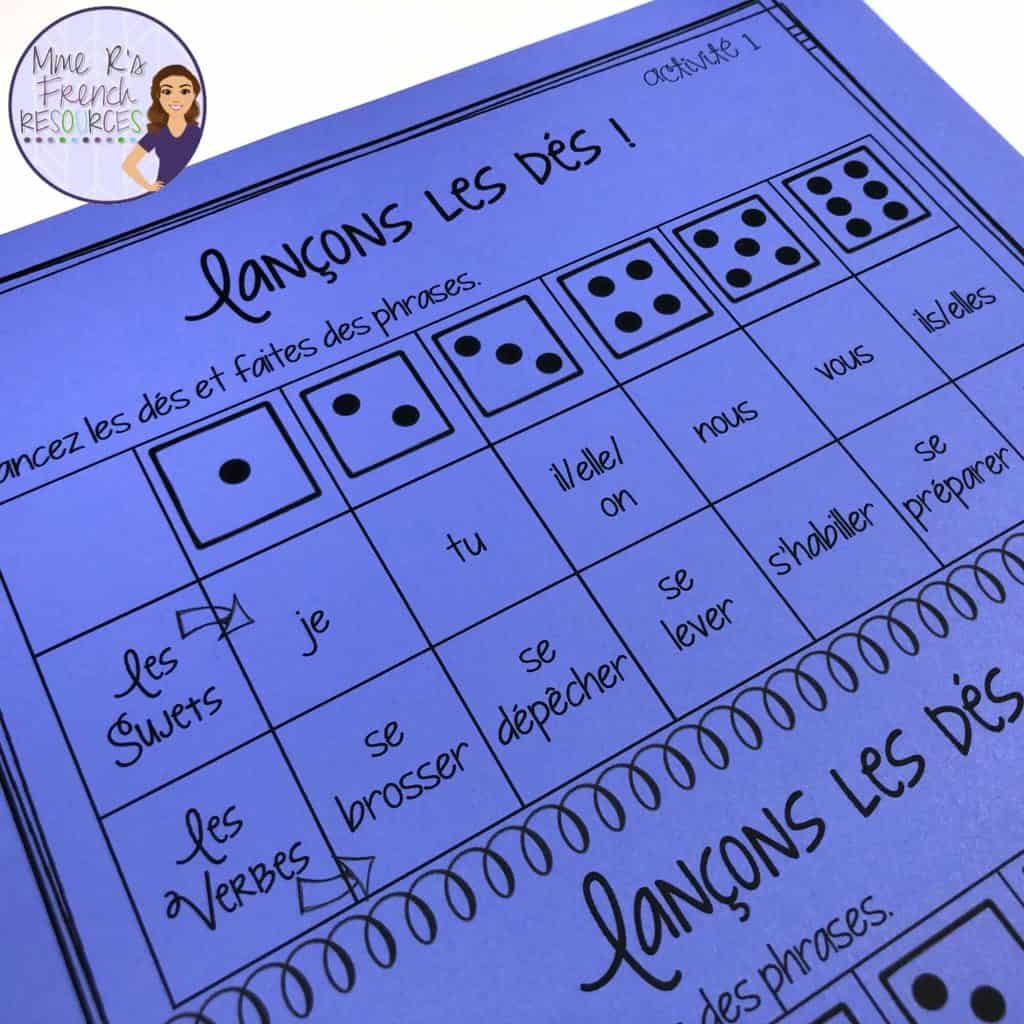
4. Use speaking cards to encourage conversation skills.
Movement-based activities are my favorite way to keep kids engaged. Even the most hesitant speakers can make great progress with targeted questions and fun activities. My speaking card packs come with fun ways to use them in class, so it’s really easy to mix up the activities and always have something new.
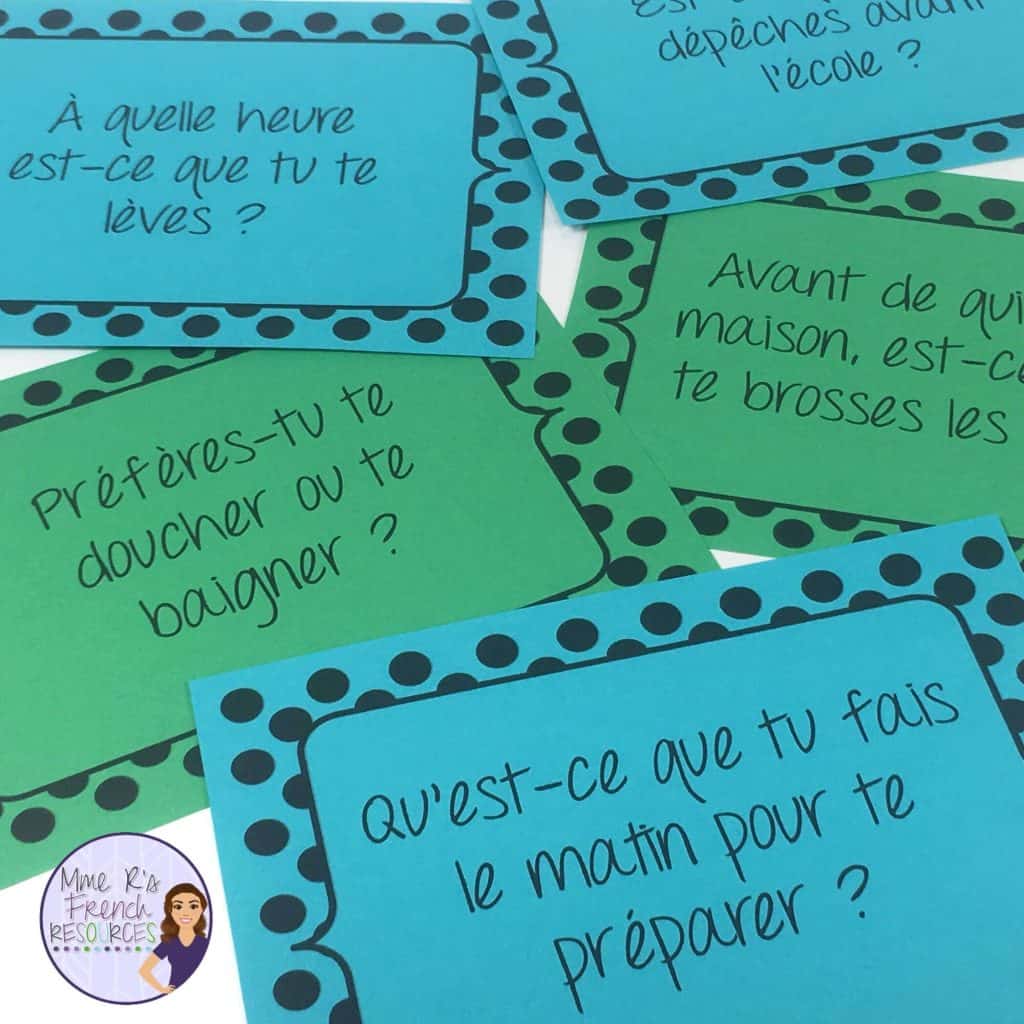
5. Write and perform skits.
These can be as formal or informal as you want. Use them as a speaking assessment or put the skit cards in a hat and have students draw them at random to act out situations spontaneously. Use the French-only version for more advanced classes or the English version for students just seeing reflexive verbs for the first time.
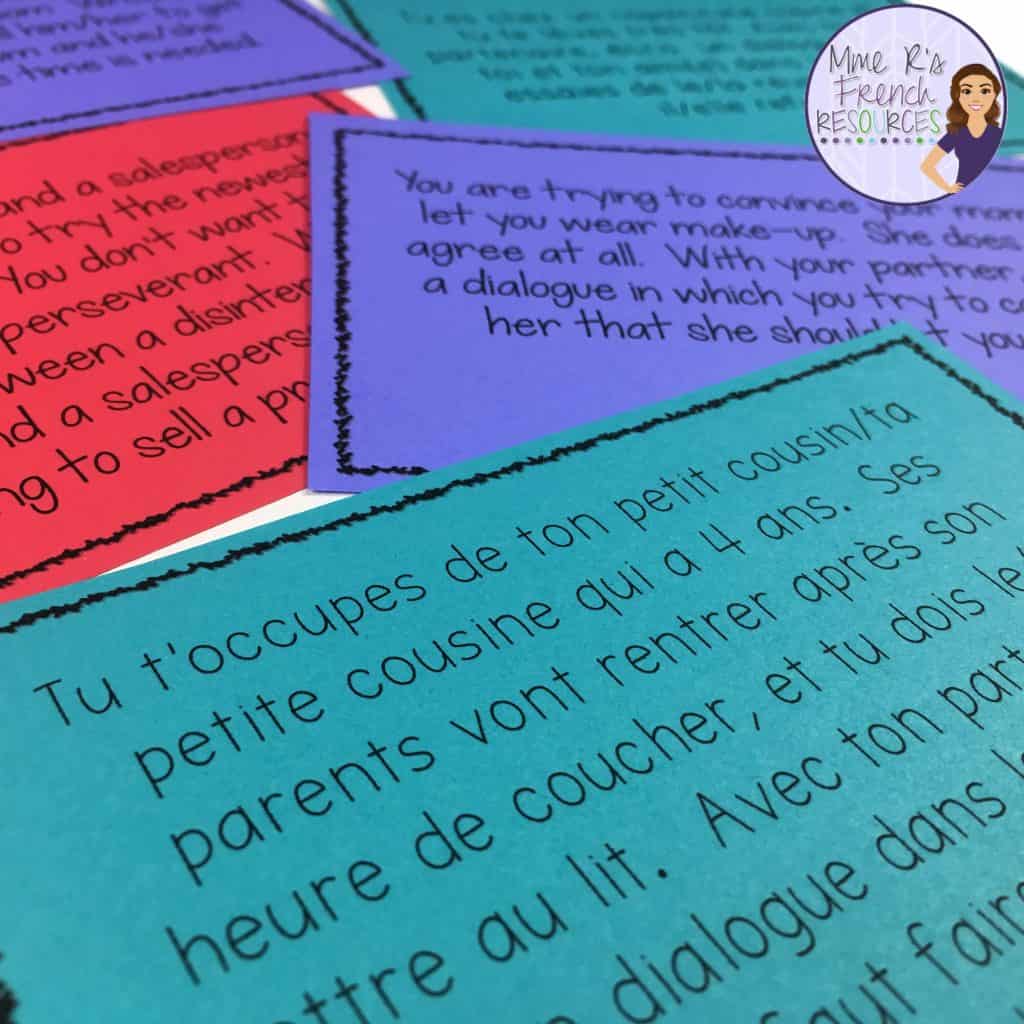
6. Partner students up with structured activities.
These partner activities are a popular favorite in many of my speaking and writing packets, and because they reach a lot of learning styles, they are really effective! The images help visual students, and the written portion helps those who like to write. For both the students who love to work with others and for those who need to practice speaking but prefer quieter activities, this is an engaging yet non-threatening way to practice speaking.
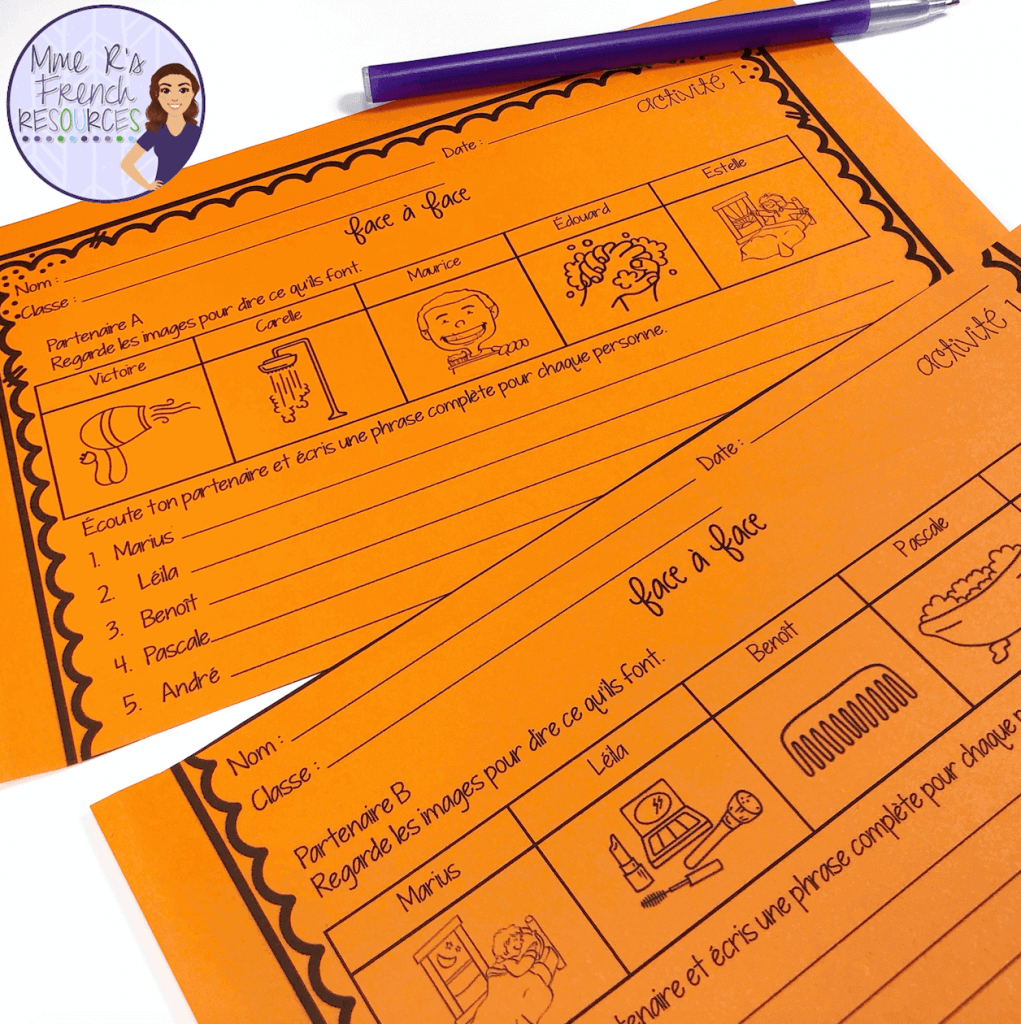
Click here for an entire bundle of engaging and effective resources for teaching French reflexive verbs.
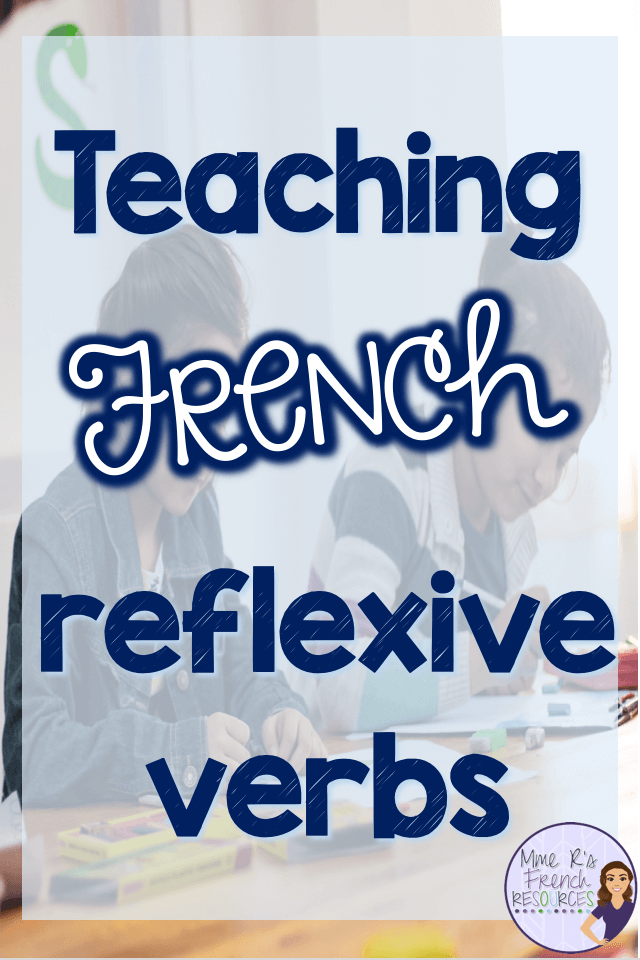
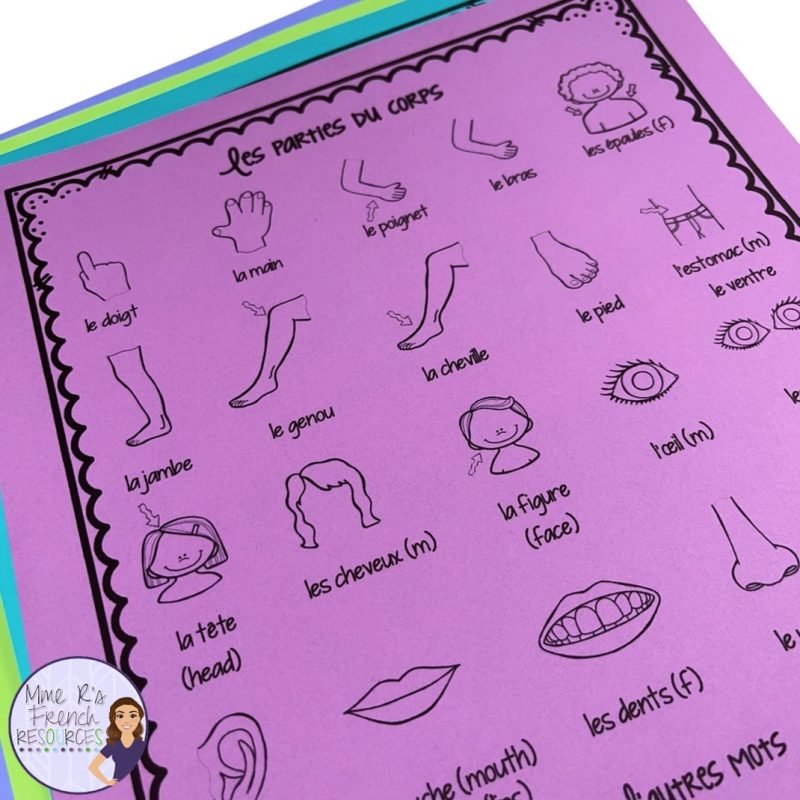
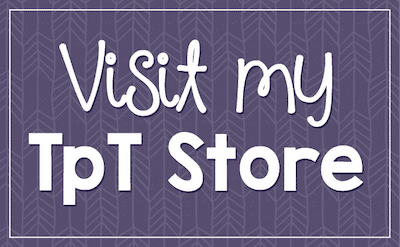

Leave a Reply